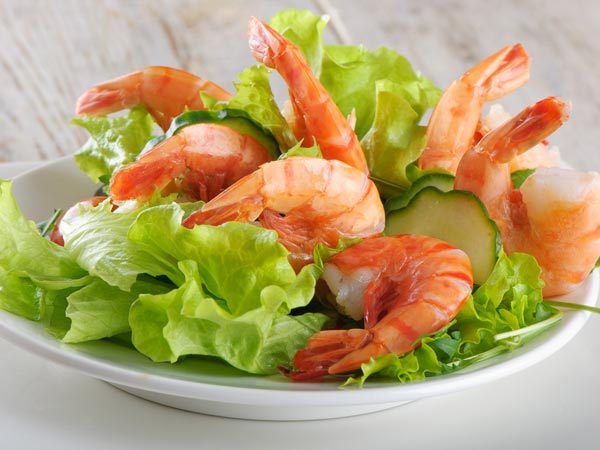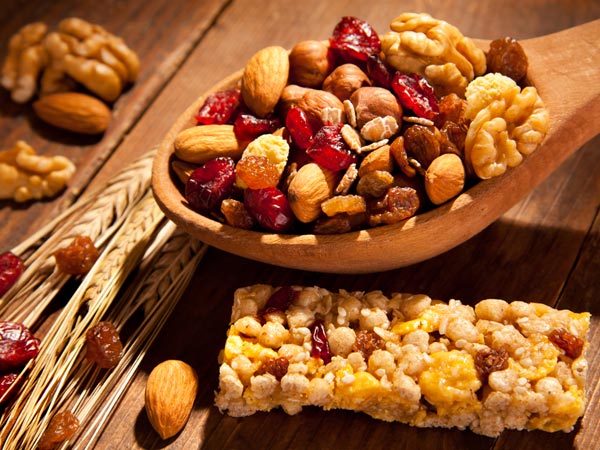Just In
- 55 min ago

- 1 hr ago

- 6 hrs ago

- 11 hrs ago

Don't Miss
- Movies
 Tillu Square Box Office Collection Day 26 Prediction: Siddhu Jonnalagadda's Comedy Film's Domination Continues
Tillu Square Box Office Collection Day 26 Prediction: Siddhu Jonnalagadda's Comedy Film's Domination Continues - Sports
 Mumbai Indians Playoffs Scenario: Can MI Still Finish in Top 4 in IPL 2024 Points Table After Defeat to RR?
Mumbai Indians Playoffs Scenario: Can MI Still Finish in Top 4 in IPL 2024 Points Table After Defeat to RR? - Finance
 40% Of India's Silver Now Imported From UAE, Thanks To CEPA
40% Of India's Silver Now Imported From UAE, Thanks To CEPA - Technology
 itel S24 & T11 Pro TWS Launching Today in India: Check Price, Specs
itel S24 & T11 Pro TWS Launching Today in India: Check Price, Specs - News
 Jija Ji Will Contest Amethi Then What Will Saale Sahab Do?: Smriti Irani Mocks Rahul Gandhi, Robert Vadra
Jija Ji Will Contest Amethi Then What Will Saale Sahab Do?: Smriti Irani Mocks Rahul Gandhi, Robert Vadra - Automobiles
 Maruti Suzuki Ertiga Continues To Lead the MPV Market Despite Long Waits
Maruti Suzuki Ertiga Continues To Lead the MPV Market Despite Long Waits - Education
 Telangana Inter Results 2024: How to Check Results Online at tsbie.cgg.gov.in?
Telangana Inter Results 2024: How to Check Results Online at tsbie.cgg.gov.in? - Travel
Kurnool's Hidden Gems: A Guide To Exploring India's Lesser-Known Treasures
Do's And Don't Of Postpartum Bleeding
After childbirth, everyone is mostly concentrating on the child’s health and proper breastfeeding techniques. We just seem to forget that another major issue to light up is post-partum bleeding, which is extremely heavy and often ignored.
Postpartum bleeding is painful and causes extreme discomfort. Endless hours of waiting can often be worsened by heavy postpartum bleeding. Profound emotional and physical changes that a lady is going through are often heightened by discomfort caused by prolonged periods which drain you of a lot of energy.
The two most important nutrients lost during postpartum bleeding are iron and calcium. We lose high levels of iron and calcium during this bleeding and thus, it becomes extremely important to replenish these deficiencies through food.
There is no better way to replenish them than foods rich in these minerals. Our body has the ability to absorb only a small portion of iron from the foods we eat. Hence, it implies that in case our diet does not include enough food with iron, then we might end up anaemic. For people who enjoy non-vegetarian food, iron can be retained from the following foods:

- Chicken liver
- Oysters
- Beef
- Clams
- Halibut
- Turkey
- Tuna
- Chicken breast
- Pork
- Shrimps
It is easier for meat eaters to replenish their iron deficits as it is easier to digest than plant iron as it is harder to process. But worry not ladies, there is plenty of vegetarian food that contains a substantial amount of iron. Few of the iron-rich foods are:

- Cereals
- Oatmeal
- Soybeans
- Lentils
- Kidney beans
- Black beans
- Tofu
- Spinach
- Black-eyed peas
- Raisins
- White bread
Post-pregnancy generally we tend to restrict our diet to lose weight and this often leads to weakened bones due to a lack of calcium. Thus it becomes essential to add some calcium-rich foods to our diet. Some of the foods that taste good and complete the need for calcium in the body are:

- Eggs
- Yoghurt
- Milk
- Cheese
- Tofu
- Fish
- Spinach
- Turnips
- Beets
Adequate fluid intake is also as important as any other nutritional need. Young mothers lose fluid in lactation as well as bleeding, so it’s important to save ourselves from dehydrating. So ladies catch up on your fluid deficiencies before you feel the punch.
Another important need is catching some warm sunshine to refill our reserves of vitamin D, as it is good and healthy to have some reserve of vitamin D. In addition to this avoid cold or extremely warm food and water as they aggravate the bleeding and also cause heartburn. Take regular meals at proper intervals to feel relieved.
It is not wrong to be wanting to return to your pre-pregnancy body, but should not be done at the cost of one’s health. So, all new mothers must be careful and cautious about their body needs and health and, recover themselves of lost nutrients before losing those extra pounds. Follow the aforementioned tips and eat healthily, and remember it's alright to gain a few extra kilos as they can be easily lost later.
-
 pregnancy parentingFrom Contractions To Water Breaking: Knowing When It's Time For The Hospital During Pregnancy
pregnancy parentingFrom Contractions To Water Breaking: Knowing When It's Time For The Hospital During Pregnancy -
 pregnancy parentingHow To Get That Post-Pregnancy Glow?
pregnancy parentingHow To Get That Post-Pregnancy Glow? -
 pregnancy parentingDon’t Do These 3 Things In The First Month Of Pregnancy
pregnancy parentingDon’t Do These 3 Things In The First Month Of Pregnancy -
 pregnancy parentingSupreme Court Rejects Plea To Abort At 27-Weeks: Risks Of Terminating Pregnancy At Advanced Stage
pregnancy parentingSupreme Court Rejects Plea To Abort At 27-Weeks: Risks Of Terminating Pregnancy At Advanced Stage -
 pregnancy parentingAre Epidurals Painful? Should Every Pregnant Woman Consider It During Delivery?
pregnancy parentingAre Epidurals Painful? Should Every Pregnant Woman Consider It During Delivery? -
 pregnancy parentingAnushka Sharma Pregnancy Rumour: How Soon Can You Get Pregnant After Your First? Tips To Consider
pregnancy parentingAnushka Sharma Pregnancy Rumour: How Soon Can You Get Pregnant After Your First? Tips To Consider -
 pregnancy parentingWhat Is The Right Gap Between Two Pregnancies? Who Should Take Extra Precautions?
pregnancy parentingWhat Is The Right Gap Between Two Pregnancies? Who Should Take Extra Precautions? -
 pregnancy parentingWhy Some Women Don't Feel Pain During Childbirth: Is It Normal?
pregnancy parentingWhy Some Women Don't Feel Pain During Childbirth: Is It Normal? -
 pregnancy parentingBalancing Baby Bumps And Blackboards: Tips For Pregnant Teachers Who Go To Work
pregnancy parentingBalancing Baby Bumps And Blackboards: Tips For Pregnant Teachers Who Go To Work -
 pregnancy parentingTransform Your Baby's Nursery into a Serene Haven with These Design Tips!
pregnancy parentingTransform Your Baby's Nursery into a Serene Haven with These Design Tips! -
 pregnancy parentingSay Goodbye to Swollen Legs During Pregnancy with These Effective Home Remedies!
pregnancy parentingSay Goodbye to Swollen Legs During Pregnancy with These Effective Home Remedies! -
 pregnancy parentingWhy Post-Pregnancy Nutrition is Crucial for Women's Well-being?
pregnancy parentingWhy Post-Pregnancy Nutrition is Crucial for Women's Well-being?


 Click it and Unblock the Notifications
Click it and Unblock the Notifications



